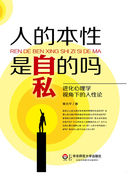Then, after several years of this secret relationship, in which the ties of sympathy and understanding grew stronger instead of weaker, came the storm. It burst unexpectedly and out of a clear sky, and bore no relation to the intention or volition of any individual. It was nothing more than a fire, a distant one--the great Chicago fire, October 7th, 1871, which burned that city--its vast commercial section--to the ground, and instantly and incidentally produced a financial panic, vicious though of short duration in various other cities in America. The fire began on Saturday and continued apparently unabated until the following Wednesday. It destroyed the banks, the commercial houses, the shipping conveniences, and vast stretches of property. The heaviest loss fell naturally upon the insurance companies, which instantly, in many cases--the majority--closed their doors. This threw the loss back on the manufacturers and wholesalers in other cities who had had dealings with Chicago as well as the merchants of that city. Again, very grievous losses were borne by the host of eastern capitalists which had for years past partly owned, or held heavy mortgages on, the magnificent buildings for business purposes and residences in which Chicago was already rivaling every city on the continent. Transportation was disturbed, and the keen scent of Wall Street, and Third Street in Philadelphia, and State Street in Boston, instantly perceived in the early reports the gravity of the situation. Nothing could be done on Saturday or Sunday after the exchange closed, for the opening reports came too late. On Monday, however, the facts were pouring in thick and fast; and the owners of railroad securities, government securities, street-car securities, and, indeed, all other forms of stocks and bonds, began to throw them on the market in order to raise cash. The banks naturally were calling their loans, and the result was a stock stampede which equaled the Black Friday of Wall Street of two years before.
Cowperwood and his father were out of town at the time the fire began. They had gone with several friends--bankers--to look at a proposed route of extension of a local steam-railroad, on which a loan was desired. In buggies they had driven over a good portion of the route, and were returning to Philadelphia late Sunday evening when the cries of newsboys hawking an "extra" reached their ears.
"Ho! Extra! Extra! All about the big Chicago fire!"
"Ho! Extra! Extra! Chicago burning down! Extra! Extra!"
The cries were long-drawn-out, ominous, pathetic. In the dusk of the dreary Sunday afternoon, when the city had apparently retired to Sabbath meditation and prayer, with that tinge of the dying year in the foliage and in the air, one caught a sense of something grim and gloomy.
"Hey, boy," called Cowperwood, listening, seeing a shabbily clothed misfit of a boy with a bundle of papers under his arm turning a corner. "What's that? Chicago burning!"
He looked at his father and the other men in a significant way as he reached for the paper, and then, glancing at the headlines, realized the worst.
ALL CHICAGO BURNING FIRE RAGES UNCHECKED IN COMMERCIAL SECTION SINCE YESTERDAY EVENING. BANKS, COMMERCIAL HOUSES, PUBLIC BUILDINGS IN RUINS. DIRECT TELEGRAPHIC COMMUNICATION SUSPENDED SINCE THREE O'CLOCK TO-DAY. NO END TO PROGRESS OF DISASTER IN SIGHT.
"That looks rather serious," he said, calmly, to his companions, a cold, commanding force coming into his eyes and voice. To his father he said a little later, "It's panic, unless the majority of the banks and brokerage firms stand together."
He was thinking quickly, brilliantly, resourcefully of his own outstanding obligations. His father's bank was carrying one hundred thousand dollars' worth of his street-railway securities at sixty, and fifty thousand dollars' worth of city loan at seventy. His father had "up with him" over forty thousand dollars in cash covering market manipulations in these stocks. The banking house of Drexel & Co. was on his books as a creditor for one hundred thousand, and that loan would be called unless they were especially merciful, which was not likely. Jay Cooke & Co. were his creditors for another one hundred and fifty thousand. They would want their money. At four smaller banks and three brokerage companies he was debtor for sums ranging from fifty thousand dollars down. The city treasurer was involved with him to the extent of nearly five hundred thousand dollars, and exposure of that would create a scandal; the State treasurer for two hundred thousand. There were small accounts, hundreds of them, ranging from one hundred dollars up to five and ten thousand. A panic would mean not only a withdrawal of deposits and a calling of loans, but a heavy depression of securities. How could he realize on his securities?
--that was the question--how without selling so many points off that his fortune would be swept away and he would be ruined?
He figured briskly the while he waved adieu to his friends, who hurried away, struck with their own predicament.
"You had better go on out to the house, father, and I'll send some telegrams." (The telephone had not yet been invented.) "I'll be right out and we'll go into this thing together. It looks like black weather to me. Don't say anything to any one until after we have had our talk; then we can decide what to do."
Cowperwood, Sr., was already plucking at his side-whiskers in a confused and troubled way. He was cogitating as to what might happen to him in case his son failed, for he was deeply involved with him. He was a little gray in his complexion now, frightened, for he had already strained many points in his affairs to accommodate his son. If Frank should not be able promptly on the morrow to meet the call which the bank might have to make for one hundred and fifty thousand dollars, the onus and scandal of the situation would be on him.















